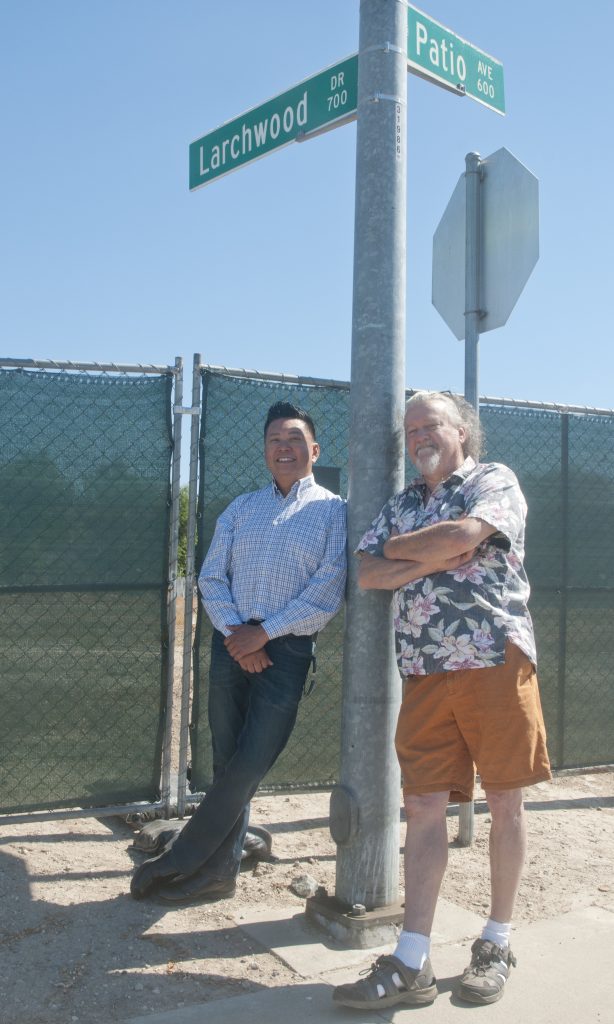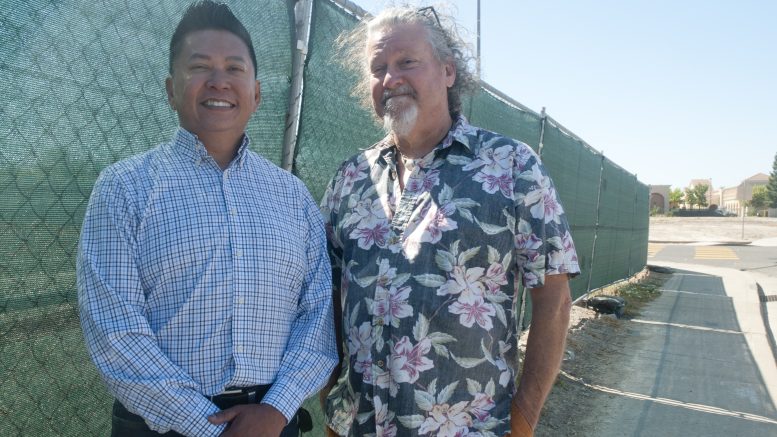It was a moment long anticipated and long deferred.
Joshua’s House, a facility offering hospice care to terminally ill homeless patients, broke ground in Natomas this June.
The project began in 2014 after founder Marlene von Friederichs-Fitzwater conceived of it to honor a beloved grandson who had died while living on the street. But between the need for funding, city approval and a suitable location, it wasn’t until this year that the dream took this ultimate step toward reality.
Yet even now, the project is not without roadblocks. Residents of the neighborhood have expressed concern about the location’s proximity to an elementary school. They are worried about residents dying in the facility, an unavoidable reality for a facility that will care for the terminally ill, yet people often die at home. There have also been concerns about everything from the fencing of the property to access to controlled medications.
Joshua’s House is also not without vocal supporters, however. Romer Cristobal, a member of the Sacramento Rainbow Chamber of Commerce, has been on Joshua’s House Board of Directors for about a year and a half.
“Before this, I worked for the state,” Cristobal explains. “I handled drug and alcohol rehab. One of the things I started to notice, especially in downtown Sacramento, was the amount of homelessness. It seems to be spreading. When I heard about Joshua’s House and its mission, I wanted to be a part of it.”
Cristobal believes his career as a state employee makes him uniquely qualified to help. He has dealt with the state inspections such facilities are subjected to. He has also encountered concerned residents.
“I’ve heard it all. It’s too close to the school, our home values are going to go down. And so on.”
His experience helps him address these concerns. For example, he has explained to community members exactly how secure access to medications will be. By law, they must be in a locked cabinet with a key code. Two staff members will have to sign off before medications can be administered.
“We demonize the poor. Why is it that when I drive down the street and I see a homeless person, the immediate thing I do is judge them? I have no idea why they’re there. There are as many reasons for not having a home as there are homeless people. But if we can blame them, we have no responsibility to help.”
Scott Kirchner
Army veteran, Natomas resident
As for proximity to the school, he insists that won’t be an issue. Joshua’s House will be discreet and private, thanks to a wrought-iron fence, bushes and sizable grounds with housing units set back from the road.

“I’ve never seen a facility close due to being too close to a school. Once they open, these facilities are so careful. Joshua’s House will be the same. They’re so careful not to make waves with the neighbors. So they follow every law and regulation to the letter. They want to make sure they’re successful.”
Another supporter has an even more personal connection to Joshua’s House. Scott Kirchner is an Army veteran with disabilities who was unhoused for a time. He knows what it’s like to be abandoned by society.
“We demonize the poor,” Kirchner says. “Why is it that when I drive down the street and I see a homeless person, the immediate thing I do is judge them? I have no idea why they’re there. There are as many reasons for not having a home as there are homeless people. But if we can blame them, we have no responsibility to help.”
However, Kirchner doesn’t see the situation as hopeless. He believes that most people support Joshua House’s basic concept: that people should die with dignity. He also believes that people ignore people who are unhoused not because they don’t care but because the problem feels insurmountable.
“It’s paralyzing,” he says. “That’s what happens to me when I feel overwhelmed: I get paralyzed. But it’s a feeling, not a fact.”
Kirchner combats this paralysis by helping the unhoused community in various ways. For years, he has gotten together with former students from his time as a professor at Sacramento State University. They make “dignity bags” containing necessities like water, hygiene items and snacks.
“It’s not going to change someone’s life. It’s for that moment when that person might just have needed a little love. It’s saying, ‘You matter.’”
His support for Joshua’s House is another way of doing this. Joshua’s House can’t cure the terminally ill. And it certainly can’t solve the larger social issues behind homelessness. But by welcoming the project to their neighborhood, residents of Natomas can in effect say these same two simple but beautiful words:
You matter.


























